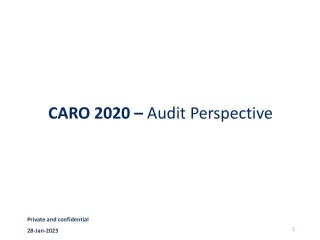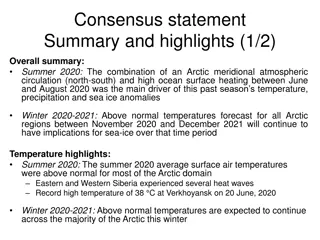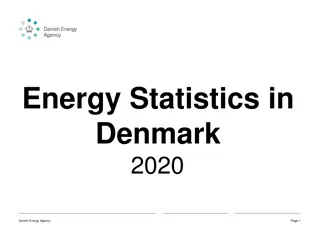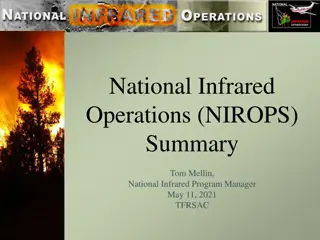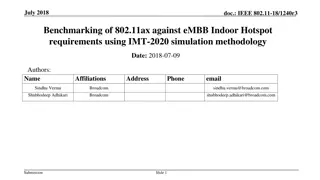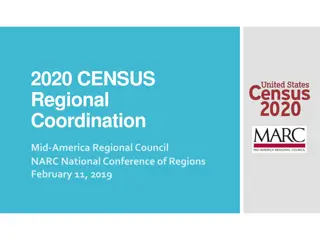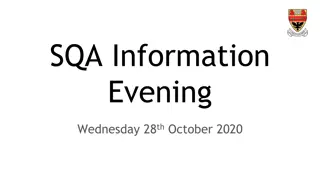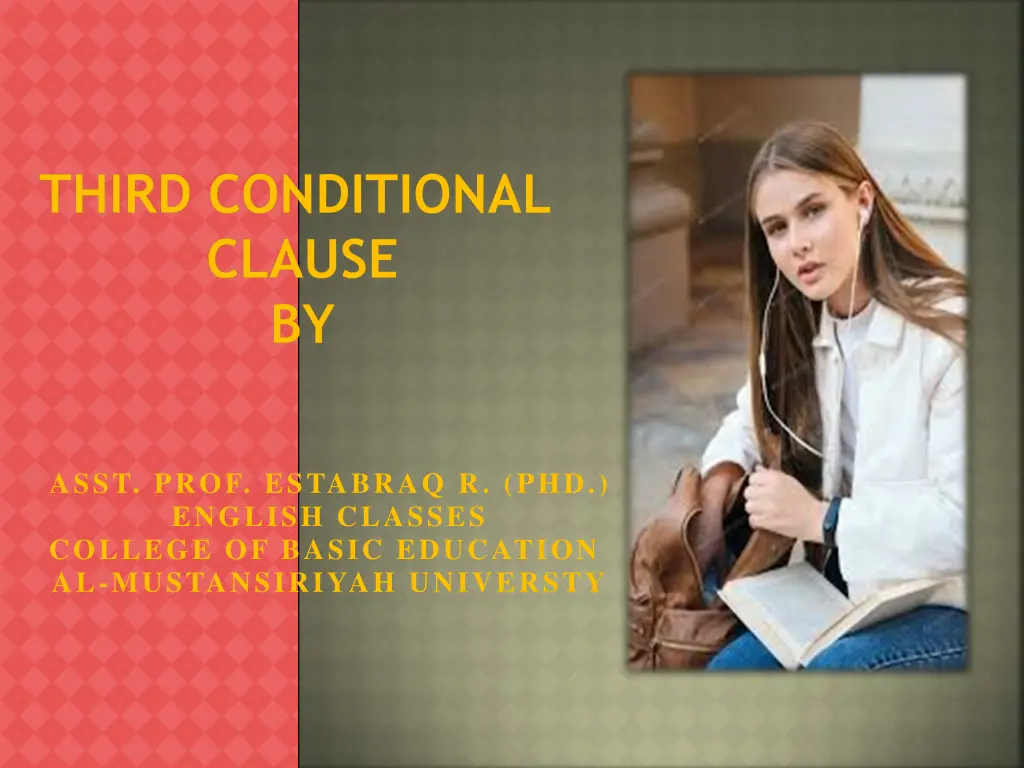
Understanding the Third Conditional Clause in English
Learn how to use the third conditional clause in English, which expresses hypothetical situations based on past events. Avoid common mistakes and master the correct usage with examples and explanations provided by Asst. Prof. Estabraq R. at Al-Mustansiriyah University.
Download Presentation

Please find below an Image/Link to download the presentation.
The content on the website is provided AS IS for your information and personal use only. It may not be sold, licensed, or shared on other websites without obtaining consent from the author. If you encounter any issues during the download, it is possible that the publisher has removed the file from their server.
You are allowed to download the files provided on this website for personal or commercial use, subject to the condition that they are used lawfully. All files are the property of their respective owners.
The content on the website is provided AS IS for your information and personal use only. It may not be sold, licensed, or shared on other websites without obtaining consent from the author.
E N D
Presentation Transcript
THIRD CONDITIONAL CLAUSE BY ASST. PROF. ESTABRAQ R. (PHD.) ENGLISH CLASSES COLLEGE OF BASIC EDUCATION AL-MUSTANSIRIYAH UNIVERSTY
Third conditional sentences are used to explain that present circumstances would be different if something different had happened in the past. Look at the following examples: If you had told me you needed a ride, I would have left earlier. If I had cleaned the house, I could have gone to the movies.
These sentences express a condition that was likely enough, but did not actually happen in the past. The speaker in the first sentence was capable of leaving early, but did not. Along these same lines, the speaker in the second sentence was capable of cleaning the house, but did not. These are all conditions that were likely, but regrettably did not happen.
Note that when using the third conditional, we use the past perfect (i.e., had + past participle) in the if-clause. The modal auxiliary (would, could, shoud, etc.) + have + past participle in the main clause expresses the theoretical situation that could have happened.
Consider these common mistakes when applying the third conditional: If you would have told me you needed a ride, I would have left earlier. If you had told me you needed a ride, I would have left earlier. Explanation: With third conditional sentences, do not use a modal auxiliary verb in the if-clause.
If I had cleaned the house, I could go to the movies. If I had cleaned the house, I could have gone to the movies. Explanation: The third conditional mood expresses a situation that could have only happened in the past if a certain condition had been met. That s why we use the modal auxiliary verb + have + the past participle.

